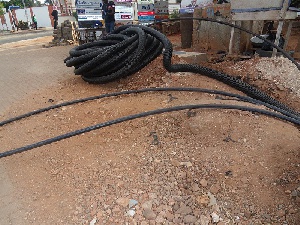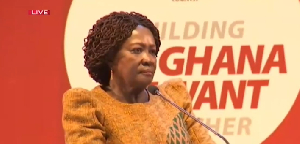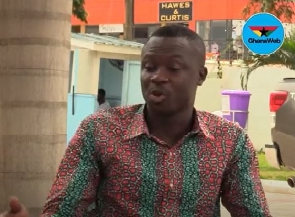Business News of Monday, 30 November 2015
Source: B&FT
Fibre-optic operators call for cable protection law
Kazeem Oladepo, MainOne Company’s Business Executive in charge of Francophone West Africa and Ghana, says it is about time government considers formulating a cable protection law that will regulate the management and protection of subsea cable infrastructure.
Speaking at a forum organised by submarine cable and pipeline infrastructure owners and landing parties -- namely MainOne Cable, MTN (WACS) Dolphin (ACE Cable) and the West Africa Gas Pipeline Company (WAPCo) -- Mr. Oladepo stated that subsea cable infrastructure is the lifeblood of the country’s economy, given the fact that all Internet and communication services go through them.
According to him, the initiative to ensure that such key infrastructure is protected has been led by the cable and pipeline operators since 2010; however, he added that it is time for government to get involved by coming up with requisite policies that will complement efforts of the operators and pipeline owners.
“There is lot more that could be done. There is the part that we need to have some cable protection regulation which other countries have implemented, like Australia. This will formalise some of the things we have been engaging ourselves with in this stakeholder community over the past couple of years.
“This will further create an environment where there is clarity, rules of engagement are better articulated, and people know what their expectations are -- in terms of what they need to do as they carry out their activities in order not to impact activities of other critical seabed users that we have in the country,” Mr. Oladepo said.
The Cable & Pipeline Protection Awareness Workshop was started by MainOne about five years ago to sensitise stakeholders about the need to protect the critical subsea infrastructure that supports the economy as the backbone of communication services.
Commenting on the workshop’s essence, Mr. Oladepo said the responsibility for protecting the cables is not only that of the cable and pipeline owners, considering their role in the economy.
“We think is a collective responsibility, and we have always had that engagement with our stakeholders to identify and implement policy structures, activities, collaborations and initiatives which will help to keep the cables running without cuts that impair our ability to deliver service,” he added.
Speaking on the sidelines of the forum, Anthony Kwesi Chintoh, Senior Manager, Network Operations at MTN/WACS, and Osama Elkhidir, Head of Technical, Dolphin (ACE Cable), said their decision to be part of the workshop stems from the fact protection of subsea infrastructure must be seen as a collective responsibility and not that of one operator alone.
They hinted that the workshop will not be a one-off event, as several other activities have been planned to increase awareness about the need to protect the cable and pipeline infrastructure.
The workshop was attended by stakeholders from sectors such as fisheries, oil and gas, transport, the Navy, National Communication Authority and telecommunication companies. The keynote address was delivered by the Deputy-Minister of Communication, Mr. Felix Ofosu Kwakye.











